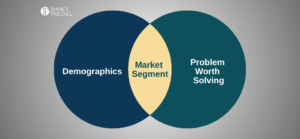What exactly is the role of variable costs when it comes to pricing?
This might already be obvious from the post “Fixed Costs Matter to Your Business – NOT Your Pricing“, but I felt the need to spell it out in more detail.
The answer?
It depends.
It depends on if you are able to set a different price for every customer or not.
Determining the Role of Variable Costs
In most – if not all – B2C businesses, the company sets a price and people decide whether or not to purchase at that price. There may be sales or promotions, there may be segmentation (at least I hope), and there may be versions – all leading to differences in prices among products. But even with these differences, the common theme is that many customers see one of these prices, and make a purchase decision. Presumably, the lower the price, the more people who purchase.
In this B2C setting, variable costs are important because you are maximizing your total gross profit. Remember, profit = Qty * (Price – variable cost). Changing the price impacts the quantity sold and the per-unit contribution margin in opposite directions. The price that maximizes profit is a tradeoff of these two effects. The key point here is that variable costs matter when determining the profit-maximizing price.
However, in many B2B situations, some deals are negotiated independently. The price one customer pays is not necessarily related to the price any other customer pays. This happens when your sales team is negotiating to get the customer to pay the most they are willing to pay, and the buyer is negotiating to get us to sell the item for the least we are willing to accept. Each customer negotiates a different price.
In this B2B setting, the only role our variable cost has is to inform the decision about the least we are willing to accept. We negotiate with a customer to see how much they are willing to pay, and then we make a decision on whether or not we want to accept their business.
This doesn’t mean, however, that we accept all business above variable costs. There may be reasons not to. Possibly our investors have margin expectations we want to hit. We may not want to devalue our product if the price does become public. We may not want our channel to see such a low price. Regardless, we certainly would not accept business below variable costs without extremely good and well-thought-out strategic reasons.
Contrasting Variable Costs to Fixed Costs in Pricing
This is an interesting parallel to the role of fixed costs. The role of fixed costs is only for us to use to decide whether or not we want to be in business. The role of variable costs, at least when it comes to pricing, is to decide whether or not we want to accept a specific piece of business or deal.
To summarize: what are the roles of variable costs? When many customers buy at the same price, variable costs are a key component in determining the profit-maximizing price; this is common in a B2C context. However, when we negotiate independent deals with customers in a B2B context, variable costs only help determine whether or not to accept the business.















